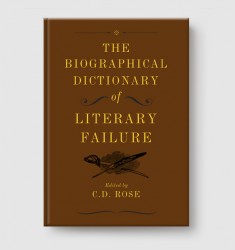Stanisław Barańczak — poet, dissident, and translator — died last week. Here's a poem I found, translated by the poet himself with Clare Cavanagh.
She Cried That Night, but Not for Him to Hear
She cried that night, but not for him to hear.
In fact her crying wasn't why he woke.
It was some other sound; that much was clear.
And this half-waking shame. No trace of tears
all day, and still at night she works to choke
the sobs; she cries, but not for him to hear.
And all those other nights: she lay so near
but he had only caught the breeze's joke,
the branch that tapped the roof. That much was clear.
The outside dark revolved in its own sphere:
no wind, no window pane, no creaking oak
had said: "She's crying, not for you to hear."
Untouchable are those tangibly dear,
so close, they're closed, too far to reach and stroke
a quaking shoulder-blade. This much is clear.
And he did not reach out — for shame, for fear
of spoiling the tears' tenderness that spoke:
"Go back to sleep. What woke you isn't here.
It was the wind outside, indifferent, clear."
I quite love this poem already. It resonates with me because... it resonates.
But here's the poem in Polish.
Płakała w nocy, ale nie jej płacz go zbudził
Płakała w nocy, ale nie jej płacz go zbudził.
Nie był płaczem dla niego, chociaż mógł być o nim.
To był wiatr, dygot szyby, obce sprawom ludzi.
I półprzytomny wstyd: że ona tak się trudzi,
to, co tłumione, czyniąc podwójnie tłumionym
przez to, że w nocy płacze. Nie jej płacz go zbudził:
ile więc było wcześniej nocy, gdy nie zwrócił
uwagi — gdy skrzyp drewna, trzepiąca o komin
gałąź, wiatr, dygot szyby związek z prawdą ludzi
negowały staranniej: ich szmer gasł, nim wrzucił
do skrzynki bezsenności rzeczowy anonim:
"Płakała w nocy, chociaż nie jej płacz cię zbudził"?
Na wyciągnięcie ręki — ci dotkliwie drudzy,
niedotykalnie drodzy ze swoim "Śpij, pomiń
snem tę wilgoć poduszki, nocne prawo ludzi".
I nie wyciągnął ręki. Zakłóciłby, zbrudził
toporniejszą tkliwością jej tkliwość: "Zapomnij.
Płakałam w nocy, ale nie mój płacz cię zbudził.
To był wiatr, dygot szyby, obce sprawom ludzi".
The first stanza of the translation is, to me, strikingly different from the original. While everything else essentially matches up, the opening sets a very different tone.
More literally, it'd be something like this...
She cried that night, but it's not her crying that woke him.
She wasn't crying for him, but it might've been about him.
It was the wind, a rattling window pane, other people's odd business.
So while the official translation maintains the rhyme, rhythm, matter-of-factness of the original, it turns on generality. There is something altogether more pointed and tragic about the original. She might be crying about him.
I've always enjoyed comparing poems in translation, and I marvel at the translators' feat. It demands emotional precision more than technical exactitude.
But to my ear, this English translation is a very different poem.
Where is the damp pillow? A person's right to sleep at night?









